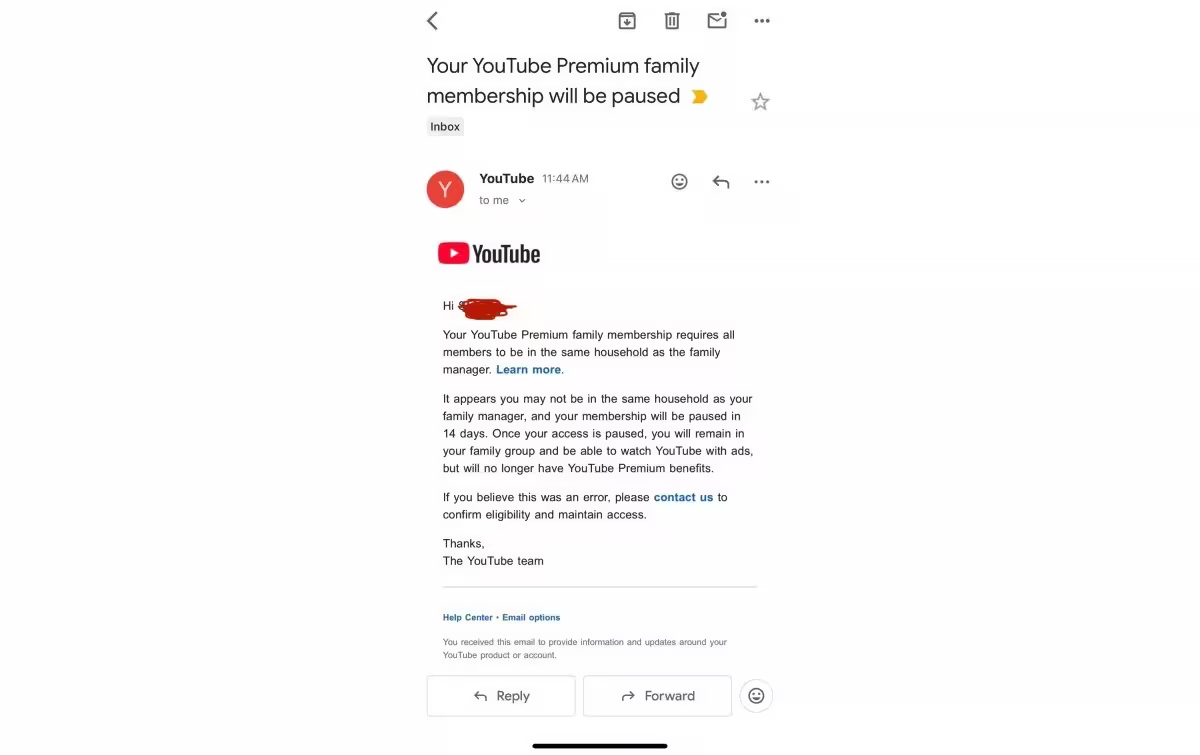3 Minutes
YouTube tightens enforcement of Premium Family household rule
YouTube has begun actively enforcing its Premium Family plan terms by flagging members who sign in from a different location than the family manager. Affected users reportedly receive a warning that their Premium membership will be paused in 14 days unless they return to the same household or the situation is resolved. This move mirrors recent efforts by Netflix and Disney+ to clamp down on account sharing and boost subscription revenue.
Why this is happening
Under YouTube's Premium family membership terms of service, all members listed on a family plan must be in the same household as the family manager. That rule is not new; what has changed is enforcement. By pausing memberships that violate the household requirement, YouTube is nudging displaced users toward purchasing their own subscriptions, increasing platform revenue and reducing unauthorized multi-household sharing.

Product features and what you lose
Core YouTube Premium benefits
YouTube Premium includes ad-free viewing, background play, offline downloads, and access to YouTube Music. These features deliver clear value for families living together, making the family plan cheaper per person compared with individual Premium subscriptions.
Comparisons, advantages, and limitations
Compared with services that have tightened password sharing, YouTube currently lacks a mid-tier option that lets out-of-household members pay a reduced fee to remain on a family plan. That means users flagged by the system face two primary choices: pay the full YouTube Premium price for their own account, or stop using Premium benefits. For households legitimately sharing a plan, the family plan remains a cost-effective advantage.
Use cases and practical advice
Best candidates for the family plan are people who live with the family manager — partners, children, or roommates who share a single residential address. If you receive a location-based suspension notice, check that the family manager has the correct household address and that location services or VPNs are not triggering false positives. If you travel often, consider a solo Premium subscription for uninterrupted access to downloads and background play.
Market relevance and outlook
This enforcement is part of a broader industry trend: streaming platforms are reducing account sharing to protect ARPU and subscription growth. Expect more streaming services to refine detection tools and membership rules. For consumers, that means re-evaluating whether shared plans still fit their usage patterns or if individual subscriptions are now the more practical choice.
Source: gsmarena


Leave a Comment